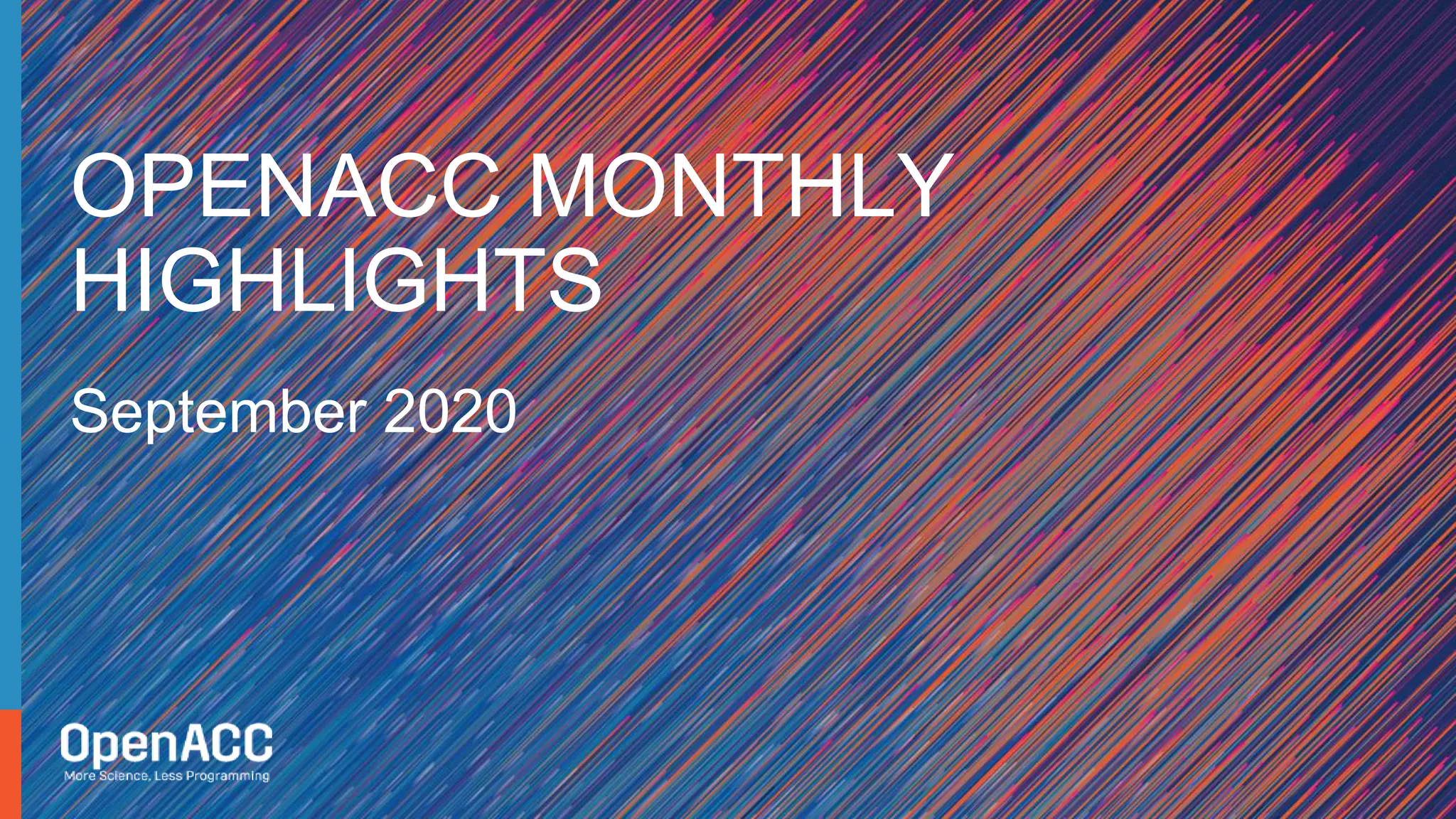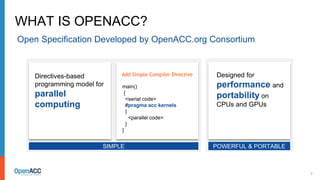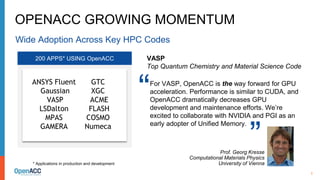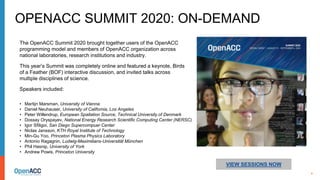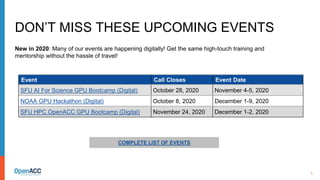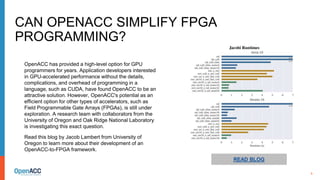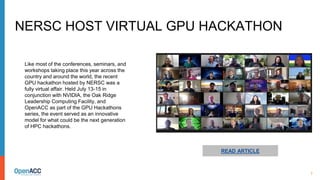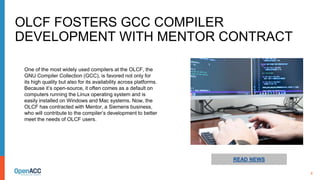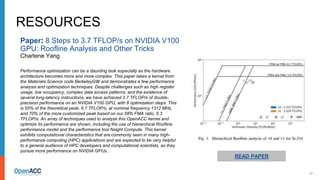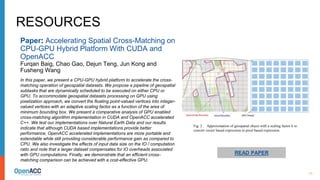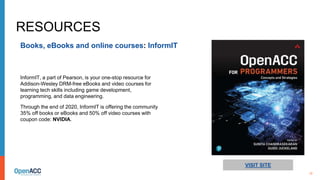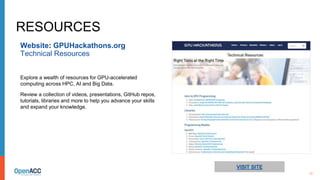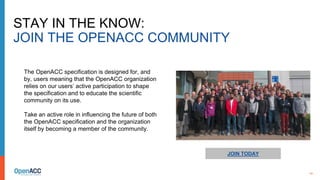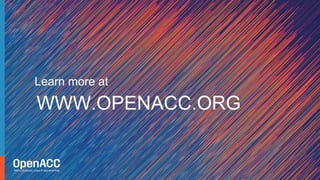The September 2020 OpenACC Monthly Highlights details the growing adoption of the OpenACC programming model for parallel computing on CPUs and GPUs, highlighting its popularity and benefits in high-performance computing (HPC) applications such as VASP. The document also recaps the virtual OpenACC Summit 2020, showcasing various speakers and events, and emphasizes ongoing research on OpenACC's applicability to other accelerators like FPGAs. Furthermore, it encourages participation in upcoming digital events and mentions resources available for GPU programming and optimization.
